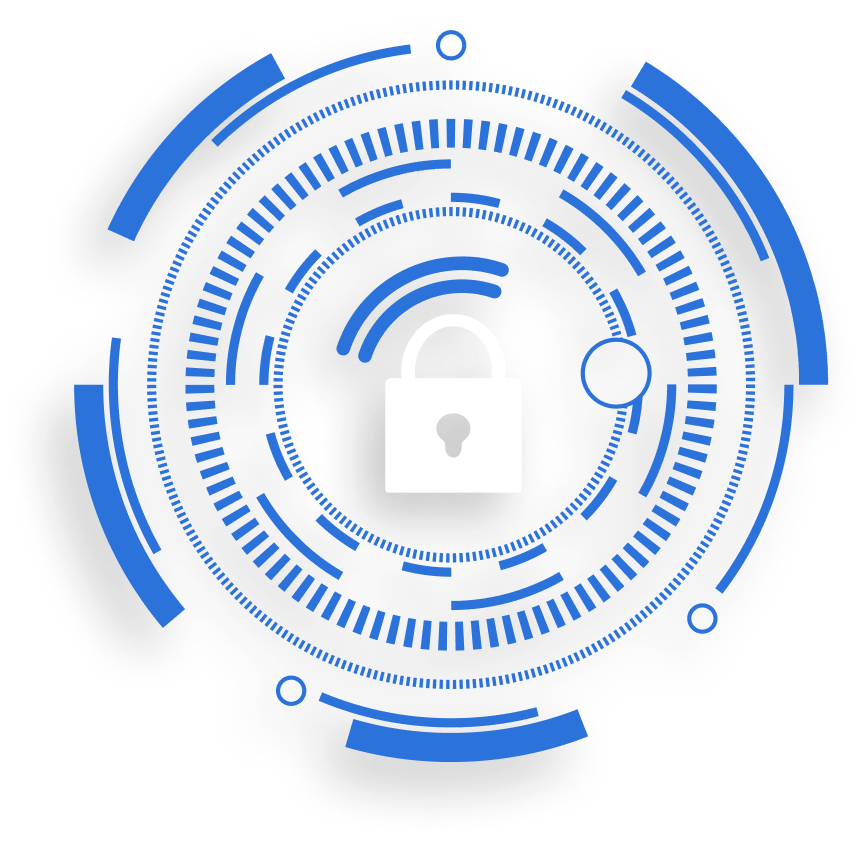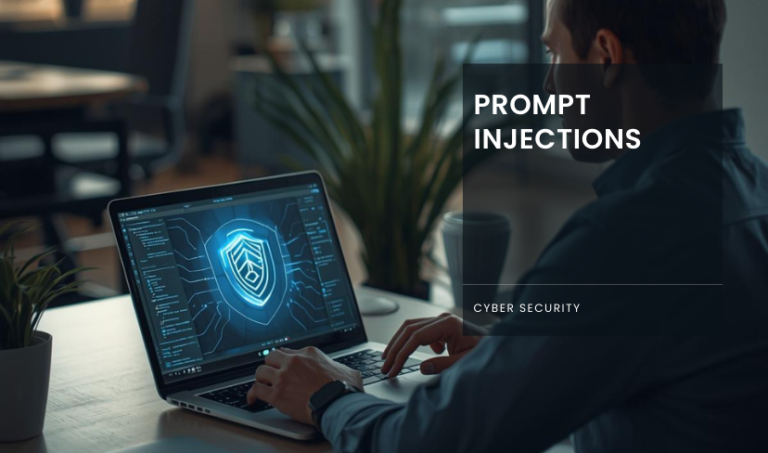Written by KRITIKA SINHA | MARKETING
In today’s interconnected world, businesses face an ever-growing threat from cyber attacks. A cyber attack can cripple operations, breach sensitive data, and damage reputations overnight. If you’re concerned about how to navigate this digital minefield, you’re not alone. Whether it’s a complex ransomware scheme or a targeted phishing attack, businesses must stay prepared and proactive.
This blog will explore the critical aspects of a cyber attack, the latest trends, and how companies like Transputec provide essential support in such situations.
What Is a Cyber Attack?
A cyber attack refers to any malicious attempt by hackers to access, steal, or damage a network or computer system. These attacks can take various forms, including malware, ransomware, and phishing attacks, which deceive users into sharing confidential information. Cybercriminals continue to refine their tactics, evolving their approaches to bypass even the most sophisticated defence systems.
According to IBM’s Cost of a Data Breach Report 2023, the average global cost of a data breach is now $4.45 million. Companies cannot afford to overlook the growing threat of cybercrime.
The Importance of Proactive Cybersecurity Measures
Preventing a cyber attack is always preferable to responding to one. Transputec offers a range of proactive services to bolster your defenses:
- Regular vulnerability assessments and penetration testing
- Implementation of multi-factor authentication
- Continuous software patching and updates
- Network segmentation to limit potential damage
By partnering with Transputec, you’re not just getting a service provider; you’re gaining a dedicated ally in the fight against cyber threats.
How to Identify a Cyber Attack in Progress?
Identifying a cyber attack in progress is critical to minimising damage and responding quickly. Attackers are increasingly sophisticated, but there are common warning signs that, if spotted early, can prevent a full-blown breach.
Here are the key indicators that a cyber attack may be underway:
1. Unusual Network Activity
One of the earliest signs of a cyber attack is abnormal behaviour on your network. This can include:
- Unexpected spikes in data traffic: A surge in network usage, especially during off-hours, can indicate that data is being transferred without authorisation.
- Unrecognised IP addresses: If foreign or unexpected IP addresses are accessing your systems, this could signify an intrusion.
- Strange connections or patterns: Your network traffic may reveal repeated login attempts, unusual connection times, or patterns that don’t match normal usage.
2. Login Irregularities
Hackers often attempt to gain access through stolen credentials, and this can result in:
- Multiple failed login attempts: These indicate brute force attacks, where hackers try to crack passwords.
- Login from unusual locations: If you see logins from IP addresses in countries where you don’t have operations, this is a red flag.
- Unauthorised user privileges: If accounts suddenly have elevated privileges, it might be a sign that an attacker has gained access and is trying to increase control over the system.
3. Unexpected Software or Files
Hackers may upload malicious software or files to execute their attacks. Signs to look out for include:
- New or unfamiliar programs running: If you notice software that you didn’t install, this could be malware or spyware running in the background.
- Sudden changes in file permissions: This could signal ransomware, where data is encrypted or blocked.
- Unrecognized files appearing: Files you don’t recall downloading or that appear suspicious can be part of an attack in progress.
4. System Slowdowns or Crashes
Cyber attacks, particularly those involving malware, often use significant system resources, leading to:
- Unexplained system crashes: Frequent or random crashes could be the result of malware trying to alter system processes.
- Slow network performance: If your internet or internal systems are suddenly lagging, this could be due to malware or a cyber attack consuming bandwidth.
5. Strange Emails or Communications
If you’re seeing unusual emails, this could be part of a phishing attack or a signal that someone is targeting your company. Warning signs include:
- Emails requesting sensitive information: Phishing emails often ask for confidential data like passwords or financial details.
- Links or attachments from unknown sources: Never click links or download files from unknown or suspicious emails.
- Internal messages that seem out of character: Hackers sometimes spoof legitimate email addresses or send malicious messages from compromised accounts.
6. Ransomware Warning Messages
A clear sign of an active cyber attack is a ransomware message, where attackers inform you that your data has been encrypted. They often demand payment in cryptocurrency in exchange for a decryption key. If you see such a message, it’s crucial to disconnect from the network and contact a cybersecurity professional immediately.
7. Unexplained Financial Transactions
Hackers may target financial systems, leading to:
- Unauthorised transfers or payments: If you notice strange bank transactions or credit card activity, it could be the result of a breach.
- Changes in payment details: Attackers may alter invoices or vendor payment information to redirect funds.
What to Do Next?
If you identify any of these warning signs, it’s important to act quickly. The first step should be to isolate affected systems to prevent further spread. Next, contact your IT or cybersecurity team to investigate and confirm whether a cyber attack is occurring. Finally, engage a professional cybersecurity service, like Transputec, for immediate response and damage control.
Early detection of a cyber attack is essential to reducing the impact on your business, protecting sensitive data, and maintaining trust with your customers and stakeholders.
The Cost of a Cyber Attack: Why It’s More Than Just Financial
When considering the impact of a cyber attack, many businesses focus solely on the immediate financial damage. However, the true cost extends far beyond monetary losses. These include:
- Reputation damage: Clients and customers lose trust when they learn your data has been compromised.
- Legal consequences: Data breaches may lead to costly lawsuits, especially if sensitive customer data has been exposed.
- Operational disruptions: Time spent recovering from an attack results in lost productivity.
- Compliance fines: Failing to meet regulatory standards in data protection can lead to heavy penalties, particularly under laws like GDPR.
The aftermath of a cyber attack can ripple through your business for months or even years. This is why partnering with a cybersecurity expert like Transputec can save companies from irreparable harm.
Preventing Phishing Attacks: What You Need to Know
Among the most common forms of cyber attacks, phishing attacks continue to wreak havoc on businesses. Phishing is responsible for more than 80% of reported security incidents globally, according to Verizon’s 2023 Data Breach Investigations Report. These attacks typically involve fraudulent emails or websites designed to trick users into providing sensitive data like passwords or credit card information.
Key strategies to combat phishing attacks include:
- Regular security training: Ensuring your employees are well-versed in identifying suspicious emails or links.
- Email filtering: Implementing tools that flag potentially harmful messages.
- Two-factor authentication (2FA): Adding an extra layer of security to sensitive accounts.
- Immediate reporting: Encouraging your staff to report phishing attempts immediately can reduce the risk of falling victim to a larger breach.
At Transputec, we’ve helped numerous clients build robust defences against phishing attacks, reducing their overall risk and improving their resilience against human error.
Protect your Business 24/7 with Transputec!
Our Managed SOC Cost Calculator estimates potential expenses for security tools and other costs based on your requirements.
How Transputec Protects Your Business from Cyber Attacks
At Transputec, we offer comprehensive cybersecurity solutions tailored to your specific needs:
1. 24/7 Monitoring and Rapid Response
Our state-of-the-art Security Operations Center (SOC) provides round-the-clock monitoring of your systems. In the event of a cyber attack, our expert team springs into action, implementing immediate countermeasures to minimise damage and protect your data.
2. Advanced Threat Detection
We employ cutting-edge AI and machine learning technologies to identify and neutralise emerging threats before they can impact your business. Our proactive approach helps prevent cyber attacks before they occur.
3. Employee Training and Awareness
Human error remains a significant factor in successful cyber attacks. We offer comprehensive training programs to educate your staff on recognising and avoiding phishing attempts and other social engineering tactics.
4. Robust Backup and Recovery Solutions
In the event of a successful cyber attack, having a solid backup and recovery plan is crucial. Transputec implements industry-leading backup solutions to ensure your data can be quickly restored, minimising downtime and data loss.
Transputec's Cyber Attack Response Protocol
When faced with a cyber attack, time is of the essence. Our expert team follows a rigorous protocol to contain and mitigate the threat:
- Immediate Threat Assessment: We quickly identify the nature and scope of the attack.
- Isolation and Containment: Affected systems are isolated to prevent further spread.
- Evidence Preservation: We secure digital evidence for later analysis and potential legal action.
- System Restoration: Our team works tirelessly to restore your systems and data from secure backups.
- Post-Incident Analysis: We conduct a thorough review to strengthen your defences against future attacks.
Partner with Transputec for Unparalleled Cyber Protection
In an era where cyber attacks are becoming increasingly prevalent and complex, partnering with a trusted cybersecurity expert is no longer optional—it’s essential. Transputec’s comprehensive suite of services, coupled with our deep industry expertise, positions us as your ideal ally in the fight against cybercrime.
Don’t wait for a cyber attack to expose your vulnerabilities. Take proactive steps to secure your digital assets today. Contact Transputec to speak with one of our cybersecurity experts and discover how we can tailor our solutions to your unique needs.

Ready to Explore How We Can Enhance Your Security Posture?
Ready to explore how we can enhance your security posture? Contact us today to speak with one of our experts.
FAQs
What is a cyber attack?
A cyber attack is a deliberate attempt by hackers to breach computer systems, networks, or devices to steal, alter, or destroy information. These attacks can include malware, ransomware, and phishing attacks.
What should I do if my company experiences a cyber attack?
Immediately isolate affected systems, alert your IT department or security team, and report the incident to authorities if necessary. Engaging with cybersecurity experts, like Transputec, can help contain the breach and prevent further damage.
How does a phishing attack work?
A phishing attack typically involves deceptive emails or websites designed to trick users into sharing sensitive information. The attacker masquerades as a legitimate entity, such as a bank or colleague, to gain trust.
What are the financial impacts of a cyber attack?
The average cost of a cyber attack for businesses is about $4.45 million. Beyond the financial losses, businesses may face reputation damage, legal penalties, and long-term operational disruptions.
How can Transputec protect my business from a cyber attack?
Transputec offers 24/7 threat monitoring, incident response, and recovery planning. We also provide tailored cybersecurity solutions and training to help your employees recognise and prevent attacks like phishing.




